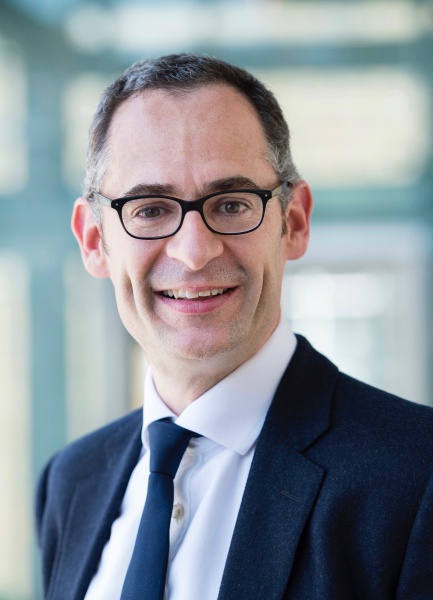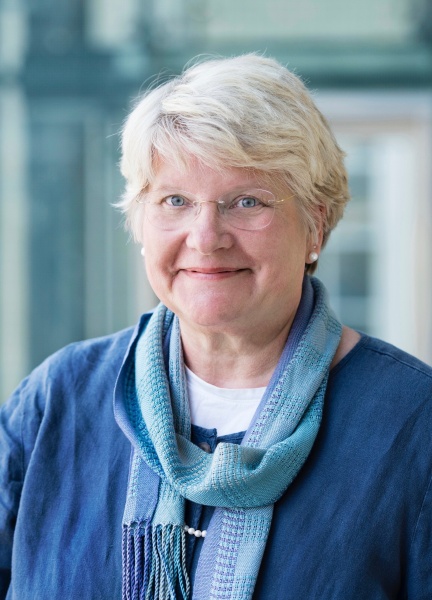New colours: Bringing people together to promote integrity and ethics in research publishing
 Our letter for you this month begins with the changing landscape in research and research publishing. We consider some of the impacts these changes have on publication ethics and integrity, and what COPE has done – and what we’re doing right now – to provide you with answers to emerging and often difficult publishing ethics questions. We review COPE’s progress to “un-silo” and find “new colours.” We share news from our work with generous and committed people at a small number of universities and research institutions to promote integrity and ethics in research publishing more effectively. We close with a thank you to everyone. This has been an amazing year for COPE, and thank you for it. We wish you all the warmth, friendship, and happiness of this festive season.
Our letter for you this month begins with the changing landscape in research and research publishing. We consider some of the impacts these changes have on publication ethics and integrity, and what COPE has done – and what we’re doing right now – to provide you with answers to emerging and often difficult publishing ethics questions. We review COPE’s progress to “un-silo” and find “new colours.” We share news from our work with generous and committed people at a small number of universities and research institutions to promote integrity and ethics in research publishing more effectively. We close with a thank you to everyone. This has been an amazing year for COPE, and thank you for it. We wish you all the warmth, friendship, and happiness of this festive season.
The changing landscape in research and research publishing
Publication ethics is part of research and research publishing. So here’s a quick look at four of the political, economic, societal, and technological forces shaping our world, in the form of a much abbreviated PEST analysis. It makes a point about change. We’ll use this as a start for this letter.
Our political “P” can be Plan S from Coalition S. This coalition of now sixteen national, European, and international research funders plus the European Commission and the European Research Council has the political power to set policy and wield influence, and aims to make full and immediate open access a reality by 2020. Coalition S shared policy ideas back in September 2018 and on November 27th added thoughts about Plan S implementation. While we were writing this Letter, Nature reported that librarians and funders in China voiced support.
For “E” and our economic forces, let’s take trends in global research spend. OECD countries spent over USD1trillion on research first in 2010, and continued to increase that budget since. Every year, researchers need to publish and communicate more work. This pressure creates new opportunities and new challenges.
For our societal “S” let’s go with the public dialogue about what being an expert means, allied with our concerns about reproducibility. We’re becoming more aware of what reproducibility requires of research, researchers, and research publishing, and about what it is reasonable to expect.
Last, for “T” and technology, let’s choose the promise and expectation from diverse parties that we can (and so we should) answer research questions and solve the world’s problems faster by using new collaboration tools, computing power, and vast amounts of open data. This technology proposition is at the heart of the open research and open science movement.
Constants at COPE: Key resources, thinking, and a voice about ethics in research publishing
This landscape, for all of us in research and research publishing, is one through which we must travel. The question for COPE becomes how does COPE act, and change, to stay true to its mission in publication ethics, and to continue to help the communities and members we serve? For example, what do we think and do about preprints? What do practices like versioning, code sharing, and data sharing mean for the relatively static “version of record” that journals create for researchers? How do stresses and strains on researchers, whether as authors or as peer reviewers, play out and what do we do about the consequences? What new opportunities do we need to embrace?
Three things feel like relative constants for COPE. Each is a part of our mission, and each is baked into COPE’s mindset. We deliver resources that support, inform and educate on publication ethics. We lead thinking and advance understanding in publication ethics. We bring a calm, neutral, and professional voice to current debates about publication ethics.
So we’ll use these “constants” as we travel this landscape. For our “P” we’ll respond to references to COPE made in the Plan S guidance on implementation with our neutral and professional voice. For our “E” we’ll recognise the new preprint practices that an increasing number of research communities are adopting by completing our guidance on preprints (started in our preprint discussion document). By doing that we’ll promote recognition of more than peer reviewed journal articles as potential research outputs, and perhaps relieve some of the pressure to publish that researchers face. We’ll address concerns about “predatory” practices, building on the discussions we already started at COPE Forum, and leading to presentation at the Sixth World Conference on Research Integrity in June 2019. For our “S” we’ll continue to encourage operational transparency from our members, working with organisations like OASPA, DOAJ, and WAME and with campaigns like Think.Check.Submit. And for our “T” we’ll keep an eye on how technology developments enable open research and open science and what this means for new resources from COPE so we continue support integrity and ethics in research publishing. We’ll keep on moving.
Changing COPE: We make more impact with universities and research institutes
“We need a culture of responsibility for the integrity of the literature… it’s not just the job of editors.” These are words, often repeated, from previous COPE Chair Ginny Barbour back in 2015. Around the same time COPE asked its members what we should do more of. One of the prominent requests was “Please, COPE, help researchers.” Our traditional members – journal editors and journal publishers – were asking COPE to reach outside its traditional membership, and to change.
We’ve responded to this request. In January of 2017 we were delighted to welcome the first members of our pilot with universities and research institutions. University of Ottawa and Ottawa Hospital Research Institute, Caltech, Queensland University of Technology, and the University of Hong Kong joined us in 2017. Ohio State University joined early in 2018. And since then the generous and professional people representing these organisations have made valuable contributions to (and we hope benefited from) many COPE activities. They have joined us in COPE Forums online to discuss cases and topical issues. They’ve attended COPE Seminars in London, UK and Melbourne, Australia. We’ve worked together on new versions of guidelines like the COPE Ethical Guidelines for Peer Reviewers now part of our Peer Review Processes Core Practice. We’ve started a needs assessment together at multiple sites, to find out what research integrity teams at universities and institutes need to address, by asking researchers. We’ve published insights on data and reproducibility, the preprint discussions mentioned above, and new infographics to help recognise potential authorship problems. This year we’ve been invited to speak at and attend events like the Ohio State University Research Integrity Summit, the Association of Research Integrity Officers (ARIO) annual conference, the German Research Ombudsman (Ombudsman für die Wissenschaft) symposium about good scientific practice, and the annual conference of the UK Research Integrity Office. These events in particular were fantastic places for COPE people to listen to what people from universities and research institutions think about publishing ethics. So we thank the organisers warmly.
New colours: We all need COPE to “un-silo”
Through all this work, we’ve learned that committed people from research intensive universities and research institutes recognise the same problems that we recognise at COPE. We’ve confirmed our assumption: COPE membership for universities and research institutions will enable us all to promote integrity and ethics in research publishing more effectively. We can’t do it alone, but we think we can do it together. We’ve learned we need to un-silo, and have started to address, with the members of our pilot, the key questions that a membership organisation like COPE needs to answer. For example, who would the COPE member be, if universities and research institutions were to become members? How would COPE assess membership applications from universities and research institutions? What would the benefits, as well as the responsibilities, of that COPE membership be?
With universities and research institutions as members our mission starts to change from “Promoting integrity in research and its publication” to something more like “Bringing people together to promote integrity and ethics in research publishing.” We’ll certainly have to keep working on the words in that statement, but the sentiment rings true: These are our new colours.
Thank you!
And at the end of 2018 we’d like to share a huge thank you from COPE to everyone who has contributed to COPE’s quite astounding work this year. That’s everyone, COPE members, volunteers and staff. But notably it’s also the new people we’ve got to know and made friends with during our pilot, and it is the organisations that they represent: University of Ottawa and Ottawa Hospital Research Institute, Caltech, Queensland University of Technology, the University of Hong Kong, and Ohio State University.
Thank you, all! We wish you all our best for this festive season, and good luck in the new year that’s waiting for us all just around the corner, 2019.
COPE co-chairs Chris Graf and Geri Pearson

